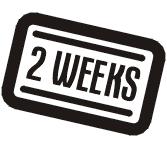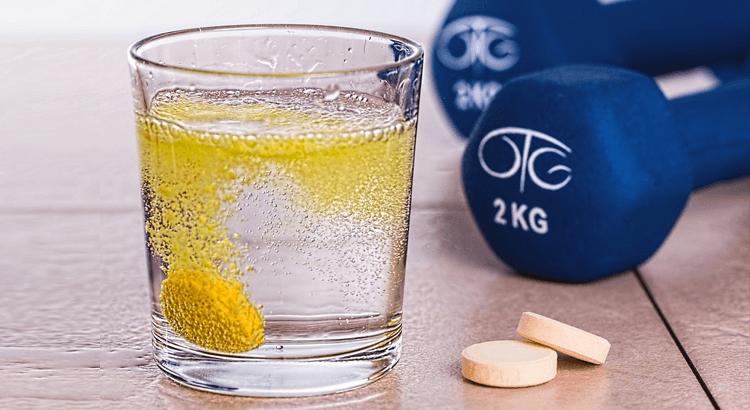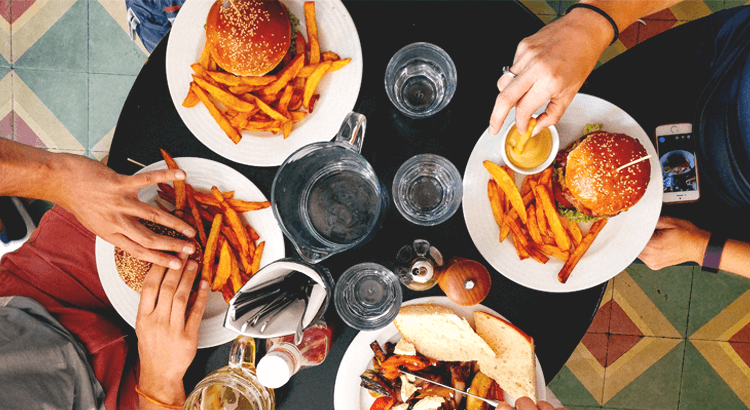The holiday’s are a time to get together with friends and family to celebrate the year that was. More often than not these celebrations involve tasty food, alcoholic beverages and from time to time can be followed by a hangover. The catch with tasty food and alcoholic beverages is the sugar spike that it gives you, leaving you tired later after eating.
So, should you feel guilty about diverging from your usual eating and exercise regime over the silly season? Absolutely not. These holidays use our guide to eat smart, ditch the guilt, and enjoy some good festive food.
Eat Smart
Social gatherings often involve grazing platters full of cheeses, dips, crackers and processed meats. These platters can also be very high in calories and make it easy for you to eat over your daily energy requirements unknowingly. If you know that you have a tendency to set up permanent residence near the grazing platter, position yourself away from the food table to avoid continually snacking. Instead, grab a few of your favourites on a plate and walk away.
To help avoid overeating at parties have a meal rich in protein and/or complex carbohydrates before leaving home. This will have you feeling satisfied and less likely to overeat when out. This is also useful when alcohol is involved. After a few drinks, our best efforts to avoid high calorie foods (midnight kebabs I’m looking at you) can be diminished. Ensuring you’ve had something substantial before going out will help reduce those cravings.
And finally, when trying to eat mindfully over the holidays and confronted by many different food options, my golden rule of thumb is veggies first. Loading up your plate with vegetables or salad at social events is an effective way to ensure the meal stays relatively healthy and keeps you fuller for longer.
Ditch the Guilt (and Goals)
The more we restrict ourselves from something, the more we will want it. Ditch the guilt and indulge these holidays with a mindful approach. That is, eating well the majority of the time and enjoying that food or drinks that you normally wouldn’t eat. By allowing yourself these foods and not telling yourself no, you open up the doors to a healthy relationship with food that allows you to enjoy these treats a whole lot more.
While you’re at it, ditch any weight loss goal you may have over this period. The average individual gains 0.8 – 1.5 kg over the festive season according to Nutrition Australia, so chances are any weight loss goals you have in place during this time will be unsuccessful. The good news is, you can solve any weight gain after the holidays.
My Go-To Festive Foods
What if I told you that two shortbread biscuits has the same amount of calories as twenty prawns? Will the biscuits fill you up? Probably not. However, twenty prawns is a high protein option that will leave you feeling satisfied until your next main meal.
When making food decisions this festive season, take a “more bang for your buck” approach. Choose foods that will keep you fuller for longer than their low volume counterpart. A plate full of salad with a few slices of ham and a piece of bread is a far more substantial option than a slice of grandma’s Christmas cake or snacking all day on nuts and chocolate.
Summer salads are always a crowd pleaser and a simple, easy to prepare way to make sure there’s always a healthy option on the food table. Pair your salad with some lean meats or seafood such as barbecue chicken or roast turkey and you have a well-balanced healthy meal. Processed meats such as salami, prosciutto and chorizo have been shown to be carcinogenic and should be eaten sparingly.
For dessert, instead of reaching for high calorie treats that only provide short term satisfaction, fill up on seasonal fresh fruit such as watermelon and cherries.
Happy Holidays
The festive season only comes around once a year. Follow these tips to keep your health in check whilst still indulging guilt-free so you can come back from holidays refreshed and re-energised. If you want to get a better hold on your nutrition and achieve your goals in the New Year contact me. Don’t forget to get back into your routine as soon as you can, maintain your group fitness classes and make sure you are still going to your local gym. If you live in the Sutherland Shire, try out our Caringbah gym membership in 2023.
Written by Madeline Parsons, BNSc
Disclaimer: The views expressed in this article are entirely an opinion by The Body Factory or representative thereof and do not take into account your individual health, circumstances or needs. For personal guidance, you should contact us or other qualified fitness or health professional.









